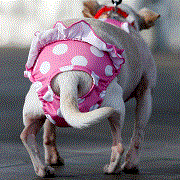|
MeramJert posted:Seriously, does there exist a Chinese wine that is even drinkable let alone good? I don't think I've heard a single person make this claim who wasn't a Chinese winemaker. Kenning posted:Rum Great info, I learned a few things myself from your thread. Octy posted:Thanks! I bought a bottle of Equipo Navazos - the name of which escapes me just now. I believe it's a Manzilla at least. I ended up having to order out-of-state, but even with shipping it comes to the exact same cost as Pedro Ximenez or Fino which is largely what you can get here. Sherry 'culture' seems to be booming down south compared to here. Manzanilla, pardon my typo.  I highly recommend having some salty Spanish tapas on hand to go with that. Even simple ones such as olives, nuts, and salted fish are awesome. I highly recommend having some salty Spanish tapas on hand to go with that. Even simple ones such as olives, nuts, and salted fish are awesome.
|
|
|
|

|
| # ? May 4, 2024 07:25 |
|
Do you have experience with straight bourbon and/or cognac? I need some general, subjective advice. I'm looking for an occasional, smooth liquor that's around $50. Not for shots, but rather to slowly nurse in small quantities after dinner. I don't even know if I should go scotch or rum, although I do like scotch. I love this Martell vsop cognac I got but I don't have experience with expensive alcohol to compare it with. Sky vodka used to be my party drink. Blah.
|
|
|
|
inkblottime posted:Do you have experience with straight bourbon and/or cognac? I need some general, subjective advice. Scotch is great, although your selection is a bit limited at $50. I'm a fan of the smokier styles that don't go crazy overboard with it; Bowmore 12 is pretty solid. I would also recommend the recently mentioned rum, and as a less expensive (and generally superior) alternative to Cognac, I'd recommend trying some Armagnac. It's still French brandy, just from a different region. Typically not quite as smooth until it's got some more age on it, but more flavour. De Montal is pretty ubiquitous and decent, although honestly it's hard to find bad Armagnac outside of France, so I encourage you to experiment. I mentioned some more premium options earlier in this thread.
|
|
|
|
Kasumeat posted:Scotch is great, although your selection is a bit limited at $50. I'm a fan of the smokier styles that don't go crazy overboard with it; Bowmore 12 is pretty solid. Funny, my coworker just recommended Armagnac. Now I have some stuff to try. Thanks!
|
|
|
|
Have you heard of a kind of Armagnac called "Esprit d'Armagnac"?
|
|
|
|
Earwicker posted:Have you heard of a kind of Armagnac called "Esprit d'Armagnac"? I haven't. Should I have?
|
|
|
|
No I just don't remember who makes it and it's really good and I'd love to get some. I spent a bit of time in the Armagnac area in France and went on a couple of distillery tours, and at one of them the founder of the distillery had invented this "esprit d'armagnac" as a present for his wife (and also they bottled and sold it there and maybe elsewhere?), but I have no clue what the name of that place was, and it was sort of a chaotic trip- you seem to know a lot about Armagnac so I was hoping you might have heard of it. When I looked on Google I just found a book about Armagnac with that title. Speaking of that general area is it possible to get Floc de Gascogne in the US?
|
|
|
|
It looks like the thread may be dying, but I thought I'd ask this here rather than starting a new "Tell": I've made beer a few times using my Mr. Beer kit:  So far I've made two "West Coast Pale Ales", one regular and one that I added grapefruit zest to (boiled it as it said on the instructions, then added to the "keg"). During March Break I'm planning on making a Lemon Tea beer (homage to the Mill Street version that is no longer being sold in my province), which I plan on adding lemon zest as well as Orange Pekoe (Lipton maybe) and Black Tea (Lady Grey) to. My question is, do I just cut open the tea bags and boil them along with the lemon zest? Additionally, how much tea should I add to get a mild flavor? ***The Mr Beer keg is 2 gallons I also plan on making a second batch after the first, which is just going to be a clementine beer.
|
|
|
|
Professor Shark posted:It looks like the thread may be dying, but I thought I'd ask this here rather than starting a new "Tell": Haven't done enough brewing myself to offer much help but I'd recommend steeping a measured quantity of tea to death and adding measured quantities of that to some beer to gauge how much you want in your brew.
|
|
|
|
Kasumeat posted:I'm a Certified Sommelier with the Court of Master Sommeliers, and work as a sommelier in a restaurant in Canada. Wine and fortified wine are my strengths but anything with alcohol is fair game. Feel free to ask about the Court and certification as well. Can you give me some tips on how to enjoy chardonnay? What makes it special and unique and why I should order a glass of it over another white? As far as white wines go, I like sauvignon blancs the most, some pinot grigios, and some rieslings so you can compare to those if needed- I tend to lean to light, citrusy and slightly sweet vs dry. But Chardonnay has just always perplexed me. Hard to explain exactly but it smells and tastes dull, heavy and sometimes sort of... greasy(?) to me. I don't know if it's the oakiness that makes me blanch (although sometimes that oaky part is very subtle or undetectable to me so that's not likely), but there is something about Chardonnay that doesn't click with me and dammit, I want to be able to appreciate this wine.
|
|
|
|
Anansi posted:Can you give me some tips on how to enjoy chardonnay? What makes it special and unique and why I should order a glass of it over another white? As far as white wines go, I like sauvignon blancs the most, some pinot grigios, and some rieslings so you can compare to those if needed- I tend to lean to light, citrusy and slightly sweet vs dry. But Chardonnay has just always perplexed me. Hard to explain exactly but it smells and tastes dull, heavy and sometimes sort of... greasy(?) to me. I don't know if it's the oakiness that makes me blanch (although sometimes that oaky part is very subtle or undetectable to me so that's not likely), but there is something about Chardonnay that doesn't click with me and dammit, I want to be able to appreciate this wine. Really good question. If you want the short version, just skip to the last paragraph, but if you want to enjoy Chardonnay, I think it's very important to understand why Chardonnay is the way it is. Chardonnay is in reality a fairly neutral grape. Try an inexpensive "Unoaked Chardonnay" and you'll see. Yet the wines made from Chardonnay, I would argue, are the most varied in style and taste in the world. Why is this? Because much of the flavour we associate with it is actually that of winemaking techniques. Its neutrality means that it's a relatively blank palette which allows the winemaker to showcase winemaking, and also the terroir it's grown in. What are these winemaking techniques? I'll give a very brief, very simplified explanation of them, but with some caveats: Wine is rarely equal to the sum of its parts, and the interplay of these elements is vastly more important than any one by itself. Additionally, these are generalisations, not rules. Oak is the most (in)famous element. It imparts a sense of vanilla, caramel, and baking-spice sweetness, a fuller, rounder mouthfeel, and a little bit of tannin. The degree of its effect varies widely due to factors such as how new the barrels selected are, how toasted they are, the type of oak, and so on. Overuse of it will taste, well, woody, killing the fruit and much else going on in the wine. Underuse can leave wines bland. It's really important to note that many of the aromas people associate with oak are actually from other winemaking elements, but they get lumped together with oak because they often, but certainly not always, occur in tandem. Diacetyl is a viscous, buttery compound that's formed during fermentation. Generally speaking, it can be controlled for (though yeast selection, temperature control, etc.), meaning the amount that ends up in the wine is largely a stylistic decision made by the winemaker. Lees are the mass of dead yeast cells. Extended lees contact gives wine a umami-driven character that I can really only describe as that of fermentation, but descriptors such as sour cream, yogurt, cheese rind, nuttiness, bread dough, mushrooms, and so on, are in the ballpark. It's basically the signature aroma of Champagne, try one next to a Prosecco and you'll get a really good handle on it. Reduction/Oxidation refers to how much oxygen the wine is exposed to during winemaking, reduction being very little. Reduction produces sulferous aromas that can add complex, savoury character to wine, as well as preserving the fruitiness of wine, but too much of it smells like rotten eggs, onion, and burnt matches. You're more likely to find reduction in wines with screw-cap closures. Oxidation produces complex Sherry and vinegar-like aromas, gives the fruit a less-fresh, more bruised taste, and softens alcohol. Finally, climate isn't really a winemaking thing, it's hugely important. Hot climates will produce Chardonnay that tastes super ripe and jammy, with tropical fruit, and will be low in acid (thus tasting flat and dull to many people). A cold climate will produce tart citrus fruit, a strong sense of minerality, and will be high in acid (which some find astringent). Most would say the best are somewhere in the middle, but everyone has their own opinion (it sounds like yours is towards the cooler side). I could go on, but this is enough of a wall of text as it is. The reason I wanted to explain all that is that with Chardonnay, there are a lot of nobs to tweak, and there's probably some configuration that works for you. I'd highly encourage you to try a wide range of styles before you give up on the grape. It sounds to me like what you're familiar with are the super-ripe, often-reductive, buttery, oaky Chardonnays which were in vogue in California in the 90s and were subsequently emulated by winemakers worldwide. The best place to start would be the wines of Chablis. This is the world benchmark for cool-climate Chardonnay. You'll find the tart fruit you enjoy, typically some lees influence, but otherwise fairly neutral until you get into premium bottlings. The wines of Macon are moderate and well-rounded, typically showing small degrees of all of the above elements. Puligny-Montrachet is generally considered to produce the best Chardonnay in the world. It's expensive, but often finds an impeccable balance of richness and lightness that is the hallmark of great Chardonnay. Lees contact and some oak influence are common. St-Aubin is a smaller, lesser-known village nearby that can offer similar greatness at significantly lower prices, but less consistently so. Meursault makes the richest style in France, the style that 90s California aimed for. However, it often manages to retain freshness and minerality that gives it life that I find is lacking in the infamous California Chardonnays often lacked. Lees contact, oak, and diacetyl are typical. Jura makes very oxidative Chardonnay. It's a very polarising style, but one I personally love. Finally, don't forget about bubbles! Chardonnay is one of the world's great sparkling wine grapes. "Blanc de Blanc" on a bottle of Champagne for all intents and purposes means it's 100% Chardonnay. You'll notice I recommended entirely wines from Burgundy. This isn't because there are no great Chardonnays made from outside of its ancestral home, but rather because the styles of winemaking for Chardonnay vary so widely outside of France that you have to be familiar with the individual bottlings to know what you're getting; in Burgundy, you can generally expect wines from a particular commune to be a certain way, although that is changing more and more.
|
|
|
|
Professor Shark posted:It looks like the thread may be dying, but I thought I'd ask this here rather than starting a new "Tell": Tea is a pretty strong flavor, and the beers and wines I've had with it have all been overpowered by the tea flavor. I'd be careful with how much you use; one bag is probably too much. Search around online and post something in the homebrew forum to see if folks have recommendations for how much tea per gallon you should add. It's always in your best interests to start with a very small amount, then try ramping it up on your next batch. Are you going off of a specific recipe?
|
|
|
|
Kasumeat posted:Really good question. If you want the short version, just skip to the last paragraph, but if you want to enjoy Chardonnay, I think it's very important to understand why Chardonnay is the way it is. Chardonnay is in reality a fairly neutral grape. Try an inexpensive "Unoaked Chardonnay" and you'll see. Yet the wines made from Chardonnay, I would argue, are the most varied in style and taste in the world. Why is this? Because much of the flavour we associate with it is actually that of winemaking techniques. Its neutrality means that it's a relatively blank palette which allows the winemaker to showcase winemaking, and also the terroir it's grown in. Thanks for the response, this was all great information and very helpful! You've inspired me to tackle chardonnays again, I'm looking forward to trying some of your recommendations. If I find any I like, I'll report back.
|
|
|
|
Imaduck posted:Are you going off of a specific recipe? No, just inspired by a type of beer I like. I'll try two bags, one Lady Grey (light, citrusy) and the standard Orange Pekoe and see how that goes!
|
|
|
|
Professor Shark posted:No, just inspired by a type of beer I like. I'll try two bags, one Lady Grey (light, citrusy) and the standard Orange Pekoe and see how that goes! I'd try a green tea as well. I had a green tea wheat beer on tap at a brew pub in Montreal, and it was totally the best thing ever. Apparently everyone else thought so too, because I came back the next day and it was all gone.
|
|
|
|
PT6A posted:I'd try a green tea as well. I had a green tea wheat beer on tap at a brew pub in Montreal, and it was totally the best thing ever. Apparently everyone else thought so too, because I came back the next day and it was all gone. I've considered it- in NS we have the Boxing Rock Brewing Co. and they released a Green Tea/ Lemon beer which sounds AMAZING on paper but in reality is just another Propeller wannabe with no discernible tea or citrus notes. I actually emailed them and told them that I thought the beer would have been great if they'd just toned down the hops and upped the tea+lemon. They didn't get back to me, and that's what really pushed me over the edge to deciding to make my own. Anyway, Lemon+Tea this time, Clementine next, Green Tea+______ next.
|
|
|
|
So I'm planning to go for the WSET level 2 cert in the summer, and if that goes well go for lvl 3 next year (or in the fall if I'm feeling totally mad) I'm currently a career server, but I"m hoping to get more into the sales side. My concern is that most of the sales people I talk to got into the profession way back in the day before the certs were really around or just networked their way in back in the day. I know this is a bit out of your department, but is this just kind of generally how it works for people trying to break into wine or spirits sales these days?
|
|
|
|
WanderingMinstrel I posted:So I'm planning to go for the WSET level 2 cert in the summer, and if that goes well go for lvl 3 next year (or in the fall if I'm feeling totally mad) I'm currently a career server, but I"m hoping to get more into the sales side. My concern is that most of the sales people I talk to got into the profession way back in the day before the certs were really around or just networked their way in back in the day. I know this is a bit out of your department, but is this just kind of generally how it works for people trying to break into wine or spirits sales these days? The short answer is yes, get certification. Undeniably, this industry is still very much one where connections are crucial, but I think there's progress towards valuing certification more and more. It really depends on what exactly you want to be doing. If you want to be an agent working for another company, certification really helps get your foot in the door if you have no personal connections. If you want to do your own thing, obviously that piece of paper is useless, but uncertified wine professionals tend to have more gaps in their wine knowledge. Studying for certification forces you to study areas that you might not give a poo poo about now, but you really never know when they'll serve you in the future. I've seen some pretty hilarious gently caress-ups due to people not knowing their poo poo (there's a difference between duras the grape and Cotes de Duras!). Most importantly, studying for certification is literally the best way to make connections in this industry. You're going to be working with current/future somms, wine directors, winemakers, agents, etc., and you're going to have the chance to demonstrate that you're a person they want to be dealing with.
|
|
|
|
Thanks, I've been having a hard time getting alot of feedback on whether getting certed was going to be helpful for anything more than "hey look at this cert I have", so that really makes me feel better about the whole project.
|
|
|
|
My family tends to prefer Pinot Noir from the Sonoma Coast, what's your opinion of them? We like La Crema as an example, Flowers being another (albeit pricier) example.
|
|
|
|
Any good sources for Mead? Never tried it before but would like to see what Vikings and Thor were going on & on about.
|
|
|
|
Rasczak posted:My family tends to prefer Pinot Noir from the Sonoma Coast, what's your opinion of them? We like La Crema as an example, Flowers being another (albeit pricier) example. To be honest I avoid Sonoma for the same reason I rarely buy anything else from California: Once exported, Californian wines tend to be very poor value. Here La Crema (which is actually an exceptionally good value, relatively speaking) runs over $30, which is just shy of some of the best Ontario Pinots on the market, which I prefer to the Sonoma style anyways. At more than $60 for Flowers, I could get literally any Ontario Pinot, or some great Burgundy. My taste tends towards more savoury, less candied styles of Pinot, of which there are very, very few in Sonoma, and the few that are there are very expensive. GORILLA BASTARD posted:Any good sources for Mead? Never tried it before but would like to see what Vikings and Thor were going on & on about. Do you live in Canada? I've had plenty of domestics, but admittedly I couldn't tell you anything about imports.
|
|
|
|
Jeez, you guys have a 100% markup on wine?
|
|
|
|
Dusseldorf posted:Jeez, you guys have a 100% markup on wine? I believe Ontario has the highest prices on liquor in the world, yes.
|
|
|
|
Dusseldorf posted:Jeez, you guys have a 100% markup on wine? Yeah, wow, I doubt I'd import at those prices as well, certainly not the Flowers. 
|
|
|
|
Dusseldorf posted:Jeez, you guys have a 100% markup on wine? I was looking this up, and it's not actually that bad. The problem with it is that it's paid by the importer instead of remitted when the goods are moved, so markup is applied on the import duty at every level, and since most of the taxes are based on volume of wine or spirits, it hits cheaper products disproportionately hard. Ontario is one exception to the rule, as unlike (for example) Alberta, the provincial tax applied on wine (and possibly spirits, I didn't check) is an ad valorem tax, but it's still only 16%. The problem is that it will be marked up several times over, along with the per-volume taxes at the federal and provincial levels. Then, if you're comparing it against Ontario-produced wine, it seems doubly bad because the tax rate applied to Ontario wine in Ontario (and possibly all domestic wine at the federal level) is 10% lower to encourage people to buy local products. My guess is that California, or possibly the US as a whole, has similar policies, making it very hard to compare apples to apples. Our taxes are still very high compared to most other places, and the US especially, but it's not quite as bad as it might seem. Our tobacco taxes make our liquor taxes seem downright reasonable (67% of value federally, and up to 90% additionally at the provincial level in the case of cigars). Having vices up here is goddamn expensive.
|
|
|
|
Just popping in to thank you for a very interesting insight, Kasumeat. You've raised my respect for your profession. I'm actually flying to Canada for business early next month, so if you're around Quebec maybe we will meet in a restaurant. In that case, please, bear with the dumb questions.
|
|
|
|
Liquor prices in Canada are crazy. At my last job whenever we would pay a visit to the company headquarters in Canada, they would always ask us to bring back liquor and beer for them because is was so cheap in the US.
|
|
|
|
I sent Mill Street a message asking them for some advice on making the Lemon Tea beer, explaining that it's no longer being offered in NS, and they're going to ask one of their Brew Masters and get back to me 
|
|
|
|
I believe this thread is too important and beneficial to get buried. I work currently for a major multi state wholesaler. I hold a CSS(certified specialist in spirits) certification, and have sold both spirits/wine/beer in large and small quantities. Those looking to try to get into the business there are some barriers that are tough but passable.
|
|
|
|
On newbie-friendly terms, how does one go about determining foods with wine? Like, what foods/spices does each characteristic of taste/smell pair well with (if I can put it that broadly)? I mean, I guess I could always ask a more knowledgeable friend about what kind of wine to bring to a meal, but teach a man how to fish, etc. Obviously even wines of the same grape or even region will have their individual differences, but on a broad level, how does one go about pairing X wine with Y food? (Ex: high tannin goes well with...?)
|
|
|
|
I'm in the restaurant and hospitality and pretend to be a wine snob by parroting what people have said, but honestly I can't taste or smell really any difference in wines beyond how sweet/sour and how alcoholic it is. I'm honestly pretty sure that most of what people "taste" is psychological and don't scientific taste tests demonstrate the same? I don't really know where I'm going with this but I thought I'd pipe in. I wish I could taste oak or vanilla or grapefruit but really, nope, tastes like wine. And besides, if you can really taste 6 million flavours in your wine why aren't people waxing lyrical about how they can determine how their meat or produce was treated? "Mmmmm, can really taste the sort of truck this particular beef was transported in." "
|
|
|
|
vintagepurple posted:And besides, if you can really taste 6 million flavours in your wine why aren't people waxing lyrical about how they can determine how their meat or produce was treated? "Mmmmm, can really taste the sort of truck this particular beef was transported in." " Never heard anyone talk about corn-fed vs grass-fed beef? It's pretty common.
|
|
|
|
Earwicker posted:Never heard anyone talk about corn-fed vs grass-fed beef? It's pretty common. That's a far cry from the vast differences that apparently pop up in nearly-identically-produced wines due to stuff like soil microbes and storage methods. Someone teach me to not be a prole 
|
|
|
|
vintagepurple posted:That's a far cry from the vast differences that apparently pop up in nearly-identically-produced wines due to stuff like soil microbes and storage methods. Well not really, I mean if you store some water in a steel tank it's going to taste differently than if you store it in a wooden barrel, because wood imparts much more of it's own taste into whatever is stored in it, and different kinds of wood have different tastes. And if you toast the wood, as some people do with wine barrels, this will also have an impact on the taste. If you previously stored a different kind of liquid in that same wooden barrel, an element of that can also linger in the wood and effect the taste of whatever you store in it next. So it makes a lot of sense that a Chardonnay fermented in stainless steel is going to have a much less "woody" flavor that if it's fermented in an oak barrel. As for soil composition it's a lot harder to pick up and sure there's a degree of bias going on when you know where the wine is from in advance, but if you get yourself three bottles of wine, each of the same varietal and the same vintage but from different parts of the world, you'll definitely notice some differences. As for picking up "notes" of this or that flavor within the wine, IMO it's a lot like hearing harmonics or overtones in a musical note, they aren't necessarily a dominant flavor but you can still pick them up especially if you separate the different parts of the taste experience, i.e the flavor that lingers in your mouth/throat after you swallow can be fairly different from the flavor that hits you at first when you smell/drink it, and focusing on those differences can be helpful in identifying the different elements of what's going on. Earwicker fucked around with this message at 21:44 on Mar 29, 2014 |
|
|
|
I just did the WSET Level 1 course in wine tasting today, and I really have to recommend it. Tasting 8 wines back to back, some of the same varietal from different regions, others not (it was 8 each of white and red), and discussing the factors in growth and production that change the wine, really helps you understand the differences easier than doing it one glass at a time on your own. A lot of it is influenced by psychological factors, and there were certainly good, inexpensive wines and bad, expensive wines, but I don't think wine tasting is bullshit the way a lot of people say it is*. They also went over some basic food pairing principles, though I'm far from an expert after an 8-hour course. Honestly, considering some of the bottles we sampled were $80-100 apiece, it wasn't even a terrible value ($350 for the course, $50 for the tasting glasses). * I don't give a poo poo if it's possible to "trick" people. That doesn't make wine tasting bullshit. For wine tasting to be invalidated, you'd have to prove to me that there's a better way for me to select the wines I want to drink (and for the winemakers to create their wines properly) than the tasting process. As taste is subjective, it stands to reason that wine tasting cannot be objective, but that doesn't make it wrong or useless. EDIT: The other important bit is that they purposefully pick wines that make whatever point they want to make about the varietal or the style, and of course they also set a logical order for them to be tasted in. I probably learned as much in one day about wines than I have in the past two years of just drinking it frequently. PT6A fucked around with this message at 03:44 on Mar 30, 2014 |
|
|
|
PT6A posted:* I don't give a poo poo if it's possible to "trick" people. That doesn't make wine tasting bullshit. For wine tasting to be invalidated, you'd have to prove to me that there's a better way for me to select the wines I want to drink (and for the winemakers to create their wines properly) than the tasting process. As taste is subjective, it stands to reason that wine tasting cannot be objective, but that doesn't make it wrong or useless. Maybe some sort of label to indicate the region they are from.
|
|
|
|
computer parts posted:Maybe some sort of label to indicate the region they are from. Do you really, really want to bring this up, again, in the wine thread, of all places? The vast, vast majority of old world wine is labelled by region, and it does confer important information to the consumer of the wine regarding growing conditions, the production and maturation of the wine, and the varietals used. Additional, legally protected terms like "reserva", "gran reserva" and "crianza" (admittedly only protected in certain countries) also provide us interesting information. These things together are enough to get the wine consumer pretty close to what they would like to drink, after which they can sample different vintages and producers of that wine to determine what they like best. EDIT: I don't want to re-tread this ground, because I already got put on probation once for defending my position on the matter. If I can't zealously defend my position without risking probation, I submit that it's not a fair discussion to have. That thread got gassed for a reason, it would be a shame to see this one get gassed too. I didn't bring this up, so loving drop it.
|
|
|
|
Archer2338 posted:On newbie-friendly terms, how does one go about determining foods with wine? Like, what foods/spices does each characteristic of taste/smell pair well with (if I can put it that broadly)? I mean, I guess I could always ask a more knowledgeable friend about what kind of wine to bring to a meal, but teach a man how to fish, etc. Obviously even wines of the same grape or even region will have their individual differences, but on a broad level, how does one go about pairing X wine with Y food? (Ex: high tannin goes well with...?) The most important thing about pairing is matching the structure of the dish. When you taste (or imagine) a dish, ask yourself, is this light and delicate or rich and powerful? One way to pair wine is by the "weight" of the food and the wine, match to match a delicate dish with a light wine, and a heavy dish with a powerful wine. Oysters with Muscadet, braised lamb shank with a rich red Bordeaux, foie gras with Sauternes, all are classic examples. Sometimes the wine is used almost as a condiment to provide something that the food wants, to provide balance. The above Muscadet example works here too: oysters love a hit of acid to give them some freshness. You could use a squeeze of lemon, but here Muscadet's lively acidity works instead. Alternatively, a very rich dish such as cassoulet can be heavy and hard to finish. But pair it with a tannic wine such as Malbec from Cahors and the tannins and fat literally bond together and make each other taste better. Alternatively, you can cut richness with crisp, cleansing acidity. The best pairing for fried chicken is Champagne, although beer is a worthy substitute. You may have noticed that almost all of these examples match a wine and a dish from the same region. This is for a reason! Food and wine co-evolved. The food of Piemonte is absurdly rich, and many of its traditional wines are absurdly tannic. They wouldn't make much sense in isolation, but coming from the same region, they food changed to match the wine which changed to match the food and so on. It's a pretty safe bet to pair food with whatever wines are from where the dish is from. Of least importance is matching flavours and aromas. Really, this should be the icing on the cake, not the basis of the pairing. Sole a la meuniare with Chardonnay from Meursault works beautifully. That's because they both (when good) have incredible balance, being both light and rich at the same time. The fact that they both have aromas of brown butter and lemon is a welcome addition, but not crucial for the pairing to work. You may have noticed that some of these methods are contradictory. That's okay! Some people prefer different things, and you just have to experiment. Some people love going rich on rich, having their Sauternes with their foie gras, whereas some would rather have some Champagne to help them get through that giant lobe of fat. Finally, I'll leave you with some miscellaneous info that's handy: - spiciness likes wine with some sweetness to balance it out, ie. Thai green curry with off-dry Riesling; spiciness and tannins are terrible together (don't tell this to the Chinese, who crush Chateau Lafite with their Szechuan food) - fats and tannin balance each other, ie. cassoulet and Barolo - acidity is really important in the wine: pairing a wine with less acid than the food makes the wine taste flabby and dull, which leads me to my next point - white wines are generally a safer bet than reds if you're in doubt, due to them generally being higher acid, without tannin, and more neutral - very funky flavours go well with sweetness, ie. foie gras and Sauternes, or Muenster cheese and sweet Gewurztraminer - Champagne goes with everything Good luck! vintagepurple posted:I'm in the restaurant and hospitality and pretend to be a wine snob by parroting what people have said, but honestly I can't taste or smell really any difference in wines beyond how sweet/sour and how alcoholic it is. I'm honestly pretty sure that most of what people "taste" is psychological and don't scientific taste tests demonstrate the same? It's just a matter of practice, but I assure you it's possible to learn. Passing higher level certification requires blind tasting at ~75%+ accuracy, which would be completely impossible if it wasn't real. Breaking wine down in a lab has shown that all of these aromas really do exists there, it's just a matter of learning how to pull them apart. As PT6A explained, it's really helpful to have a bunch of wines side by side. But really the most important thing is having someone to learn from. If you're in a decent sized city, I guarantee there will be someone who's really into wine who would love to teach you how to become a better taster. If your restaurant doesn't have a sommelier, find one that does and tell the somm you're interested. Kasumeat fucked around with this message at 07:07 on Mar 30, 2014 |
|
|
|

|
| # ? May 4, 2024 07:25 |
|
What's up with port + walnuts? It tastes like magic. How does that work?
|
|
|




















